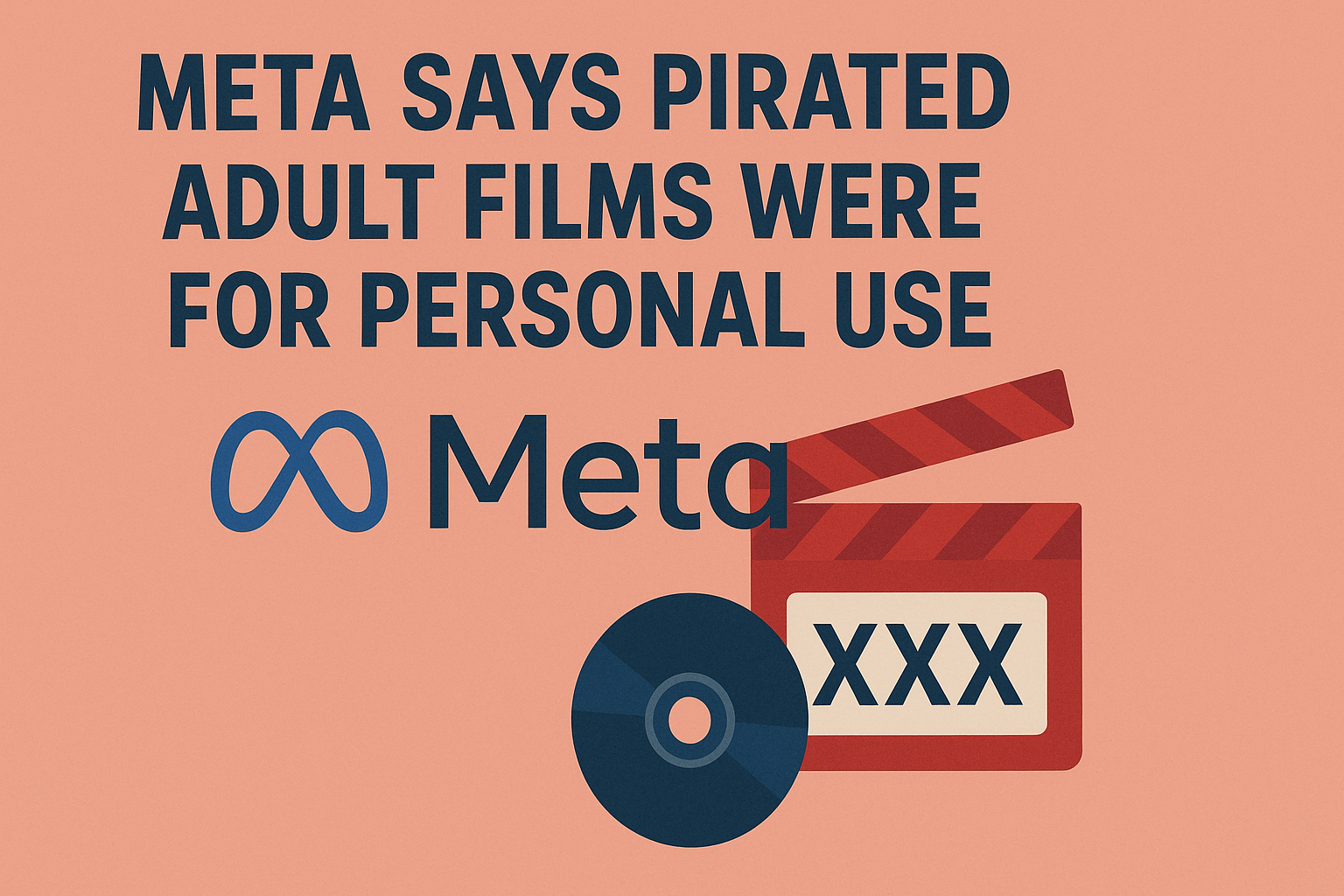News
Meta Says Pirated Adult Films Were For Personnal Use
Meta’s employees are pretty creepy if they’re doing that at work
Meta has rejected allegations that it used pirated adult films to train its artificial intelligence models, calling the claims baseless and unsupported. The company’s response arrives as Strike 3 Holdings, an adult film studio, filed a lawsuit accusing Meta of illegally downloading thousands of its films through BitTorrent from corporate IP addresses.
According to the lawsuit, Strike 3 alleges that Meta downloaded at least 2,396 of the studio’s productions to train its AI systems, specifically the Meta Movie Gen and LLaMA models, as well as other AI programs that rely on video training content. The studio contends these downloads were part of Meta’s broader AI training efforts.
Meta asked the U.S. District Court to dismiss the suit, asserting that Strike 3 has not presented any factual evidence to support its claims. The company said there is no indication whatsoever that any of its AI models have been trained using adult images or videos, describing the allegations as speculative and misleading.
In its filing, Meta argued that Strike 3’s complaint rests on conjecture, with the studio weaving a narrative from assumptions rather than verifiable facts. Meta also noted that Strike 3 has filed thousands of copyright infringement lawsuits and has, at times, been described by observers as a copyright troll pursuing contentious legal actions.
Meta suggested that any downloads of adult content tied to its network could have been performed by employees, contractors, or visitors for personal use rather than as part of an official AI training process. The company also pointed to its AI terms of service, which expressly prohibit users from generating or attempting to generate adult content or pornography, making the premise of the lawsuit inherently flawed.
Addressing Strike 3’s claim that Meta should have more closely monitored its corporate network, Meta described such monitoring as extraordinarily complex and invasive given the scale of its global operations.
The case adds to a growing wave of legal challenges involving the use of publicly available or copyrighted data in training artificial intelligence systems. Both sides have underscored competing views about what constitutes acceptable data usage and the level of scrutiny warranted for large tech networks. Analysts have noted that disputes over data sourcing and copyright will likely continue as AI development progresses and as more entities seek to protect their rights.
Strike 3 Holdings has long been a focal point in copyright litigation within the digital content space. Critics of the studio say its approach reflects a broader strategy of pursuing enforcement actions against platforms and providers that host or distribute large volumes of content. Supporters, however, describe the lawsuits as necessary steps to uphold creator rights in the digital age.
Meta emphasizes that it remains committed to responsible AI development and compliance with applicable laws. The company did not speculate about future rulings but reaffirmed its position that there is no factual basis to claim that its AI models were trained on Strike 3 content. The court has yet to determine the next steps in this dispute.
The lawsuit is part of a wider legal landscape where technology companies face ongoing questions about data sources for AI training, including whether downloads occur under legitimate licensing, user consent, or via other means. As jurists evaluate these issues, the actions taken by Meta and Strike 3 will contribute to the evolving framework governing data usage in AI development.












